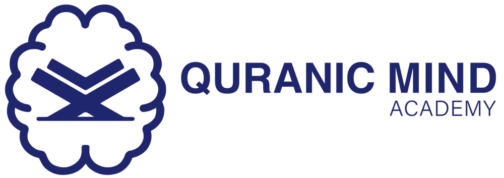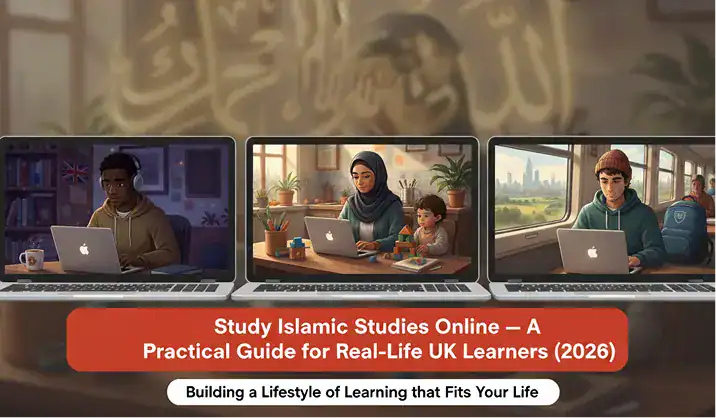The Sciences of the Quran (Ulum al-Quran) open the doors to understanding Allah’s Book from every angle | its revelation, compilation, readings, styles, and miraculous eloquence. For learners today, especially in the UK, these sciences are more accessible than ever through courses, books, and online study.
What Are the Sciences of the Quran?
The Sciences of the Quran are disciplines developed by Muslim scholars to explore every aspect of the Quran, such as:
-
Asbab al-Nuzul (reasons of revelation)
-
Qira’at (variant readings)
-
Meccan and Medinan verses
-
Abrogation (Naskh)
-
Miraculous nature & rhetoric (Balaghah)
-
Compilation & calligraphy of the Quran
📌 Classical scholars like al-Zarkashi (47 types) and al-Suyuti (80 types) documented these sciences, showing their richness and diversity.
Origins of Quranic Sciences:
-
Prophetic Era: Companions learned directly from the Prophet ﷺ; sciences existed orally, not documented.
-
Caliph Uthman (RA): Mushaf standardized → first steps of Quranic calligraphy.
-
Caliph Ali (RA): Grammar rules established → foundation of Arabic linguistics.
-
Umayyad & Abbasid Eras: Systematic codification of tafsir, readings, and fiqh rulings.
-
Codification Period: Works like al-Burhan and al-Itqan became core references.
These sciences are now commonly taught as part of structured online Quran classes, allowing students to study Ulum al-Quran alongside recitation and tafsir.
Historical Development Timeline:
| Era | Key Milestone | Impact on Quranic Sciences |
|---|---|---|
| Prophet’s Era | Direct teaching of meanings, contexts, tajweed | Sciences existed orally |
| Caliph Uthman (RA) | Standardization of the Mushaf | Foundation of calligraphy & preservation |
| Caliph Ali (RA) | Introduction of Arabic grammar | Protection from linguistic corruption |
| Umayyad Era | Emergence of tafsir foundations | Organized commentary begins |
| Abbasid Era | Codification & expansion | Books on readings, abrogation, rhetoric |
| Classical Period | Works like Al-Burhan & Al-Itqan | First comprehensive references |
Types of Quranic Sciences:
| Category | Examples | Focus |
|---|---|---|
| Sciences tied only to Quran | Asbab al-Nuzul, Qira’at, Meccan vs. Medinan | Context & authenticity |
| Legal sciences | Abrogation (Naskh), rulings, decisive & ambiguous | Shari’ah guidance |
| Linguistic sciences | Grammar, rhetoric, Quranic meanings | Language & eloquence |
Comparison Between Scholars’ Classifications:
| Scholar | Number of Sciences | Notes |
|---|---|---|
| Al-Zarkashi | 47 | Listed in Al-Burhan fi Ulum al-Quran |
| Al-Suyuti | 80 (could exceed 300) | Detailed in Al-Itqan fi Ulum al-Quran |
| Modern Scholars | 100+ | Expansion due to academic categorization |
📩 Learn Ulum al-Quran with expert teachers
Benefits of Studying the Sciences of the Quran:
-
✅ Deep Understanding: Grasp the wisdom behind revelation and rulings.
-
✅ Stronger Faith: Witness the Quran’s miraculous eloquence.
-
✅ Defend the Quran: Answer doubts and misconceptions confidently.
-
✅ Cultural Growth: Expand Arabic knowledge and literary taste.
-
✅ Practical Application: Apply rulings and lessons to daily life.
💡 For Muslims in the UK, these sciences provide a structured path to connect spiritually and intellectually with the Quran.
Studying Quranic Sciences in the UK:
For learners in the United Kingdom, opportunities are wide:
-
🎓 Ebrahim College – Introduction to Quranic Sciences course
-
🎓 Fountain Institute – Summer programme on Ulum al-Quran
-
🎓 Al Balagh Academy – Online diploma modules
-
🎓 Whitethread Institute – Year-long Ulum al-Quran programme
👉 But if you want flexible, online, and personalized learning, Quranic Mind makes these sciences accessible globally with 1:1 teaching and trial lessons.
Books & Resources:
-
Classical References:
-
Al-Itqan fi Ulum al-Quran – Imam al-Suyuti
-
Al-Burhan fi Ulum al-Quran – Imam al-Zarkashi
-
-
Modern Works:
-
An Introduction to the Sciences of the Quran – Dr. Yasir Qadhi
-
Ulum al-Quran: An Introduction to the Sciences of the Quran – Ahmad Von Denffer
-
-
UK Availability: Many are sold through Al-Hidaayah (UK), Islamic bookstores, and online platforms.
💡 If you’re inspired to go deeper, the easiest way is through structured learning.
At Quranic Mind we offer a dedicated Online Ulum al-Quran Course designed for non-Arabic speakers in the UK and worldwide. With one to one classes, flexible schedules, and Azhar-certified teachers, you can explore revelation, tajweed, and interpretation step by step.
📩 Learn Ulum al-Quran with expert teachers
Practical Applications of Quranic Sciences:
-
Academic: Support Islamic studies research in UK universities.
-
Faith: Strengthen personal connection with Quran’s guidance.
-
Apologetics: Respond to Orientalist doubts and misconceptions.
-
Da’wah: Use Quran’s miraculous aspects in inviting others to Islam.
-
Everyday Life: Apply rulings and wisdom in family, work, and society.
Difference Between Tafsir and Sciences of the Quran:
-
Tafsir: Explains meanings of verses (rulings, beliefs, stories).
-
Sciences of the Quran: The broader umbrella, covering tajweed, readings, grammar, abrogation, miracles, and tafsir itself.
👉 In short: Tafsir is one branch of Ulum al-Quran, not the whole tree.
Famous Scholars in Quranic Sciences:
-
Ibn Jarir al-Tabari – Father of Tafsir
-
Imam al-Qurtubi – Specialist in rulings of Quran
-
Imam al-Suyuti – Author of al-Itqan fi Ulum al-Quran
-
Imam al-Razi – Known for rational tafsir
-
Ibn Ashur – Modern authority on Quranic interpretation
-
Yasir Qadhi (UK/US) – Contemporary scholar with accessible works
FAQs
Q1: What are the Sciences of the Quran?
They are disciplines that explore the Quran’s revelation, compilation, readings, eloquence, and rulings.
Q2: Who wrote about Ulum al-Quran?
Classical scholars like al-Zarkashi and al-Suyuti; modern scholars like Yasir Qadhi and Von Denffer.
Q3: How many types are there?
Between 47 (al-Zarkashi) and 80 (al-Suyuti), possibly 300+ in detail.
Q4: What’s the difference between Tafsir and Ulum al-Quran?
Tafsir explains verses; Ulum al-Quran is the umbrella science that includes tafsir, tajweed, qira’at, and more.
Q5: How can I study them in the UK?
Enroll in institutes (Ebrahim College, Fountain Institute, etc.) or take structured online courses like those at Quranic Mind Academy.
Conclusion & Call to Action:
The Sciences of the Quran (Ulum al-Quran) form a treasure chest of Islamic knowledge—spanning history, law, language, and spirituality. From asbab al-nuzul to tajweed, from balaghah to qira’at, these sciences guide Muslims to a holistic understanding of the Quran.
📌 Ready to go deeper? Join Quranic Academy’s Online Quran classes—with expert teachers, flexible schedules, and 2 free trial lessons to start your journey today.
📩 Learn Ulum al-Quran with expert teachers



